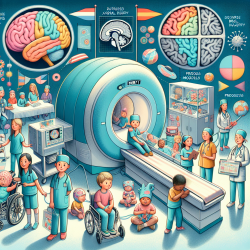Introduction
In the realm of mental health, the youth demographic often faces unique challenges, with depression and suicidality being significant concerns. Recent research highlights that depressive disorders affect approximately 10% of youth, with a notable increase in mental health issues among this group. The EMPATHY program, a novel school-based initiative, is emerging as a beacon of hope, demonstrating promising results in mitigating these challenges.
The EMPATHY Program: A Data-Driven Approach
The EMPATHY program, which stands for Empowering a Multimodal Pathway Towards Healthy Youth, adopts a comprehensive approach to address youth mental health. This program involves universal cognitive-behavioral therapy (CBT) sessions, targeted interventions for high-risk students, and guided internet-based CBT for those identified as depressed or at high risk.
The pilot study involved 3,244 youth aged 11–18, screened for depression, suicidality, anxiety, and other factors. Notably, the program provided rapid interventions for students identified as actively suicidal, significantly reducing the number of such cases from 125 at baseline to 30 after 12 weeks.
Key Findings and Implications
The EMPATHY program's initial findings are promising, showcasing significant decreases in depression and suicidality among participants. Of the 503 students offered the CBT program, 163 participated, experiencing notably lower depression scores than those who did not engage.
These results underscore the potential of school-based interventions in creating positive mental health outcomes. However, the study also highlights areas needing further exploration, such as the long-term efficacy of such programs and the integration of technology in mental health interventions.
Practical Applications for Practitioners
For practitioners, the EMPATHY program offers valuable insights into implementing effective mental health strategies within school settings. Here are some actionable steps:
- Integrate CBT-based resiliency programs into school curriculums to enhance students' coping mechanisms.
- Utilize rapid screening tools to identify at-risk students and provide timely interventions.
- Incorporate guided internet-based therapy to complement traditional methods, ensuring accessibility and flexibility for students.
Practitioners are encouraged to explore further research on multimodal approaches and their impact on youth mental health, contributing to a more comprehensive understanding of effective intervention strategies.
Conclusion
The EMPATHY program represents a significant step forward in addressing youth depression and suicidality through school-based interventions. By leveraging data-driven insights and innovative approaches, practitioners can enhance their skills and contribute to better mental health outcomes for children.
To read the original research paper, please follow this link: Initial Findings from a Novel School-Based Program, EMPATHY, Which May Help Reduce Depression and Suicidality in Youth.










